Ross Rosenberg's Blog
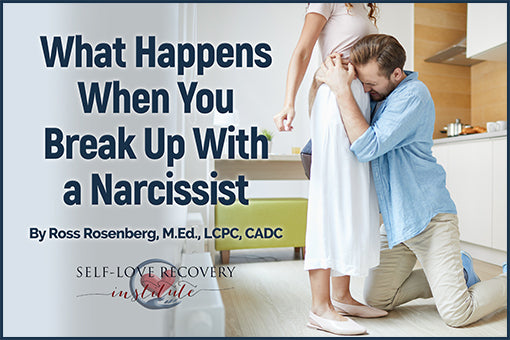
What Happens When You Break Up With a Narcissist
Most narcissists who are facing “the boot” will do almost anything to stall or buy time. They try to regain a foothold on the codependent’s demonstration of power, control and resolve. Any last-ditch efforts or promises to change or stop may be genuine but are impossible and do not elicit permanent results. This is because pathological narcissists lack the psychological resources, ability, and insight to stay focused on what is wrong with themselves
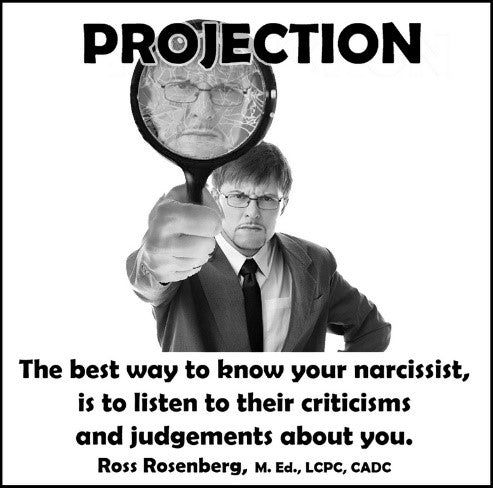
PROJECTION AND NARCISSITIC INJURIES
Projection is a defense mechanism that invisibly and unconsciously protects the narcissist from understanding their true shame-dominated and self-hating selves. Narcissists project their self-hatred, self-judgment, and unexpressed rage over their unmitigated child abuse onto a safer person: the offending and supposedly injuring person. Projection conveniently shifts, places, and diverts all of what the narcissist hates about themselves, which is too painful and unsafe to recollect, onto the person they misperceived as hurting them.

TALKING ABOUT A REVOLUTION
Excerpt from “The Codependency Revolution:Fixing What Was Always Broken (2024)” Ross Rosenberg, M.Ed., LCPC, CADC The Outside Revolution “…..As my typing fingers translated the circuitous exploratory processes of my mind, I...
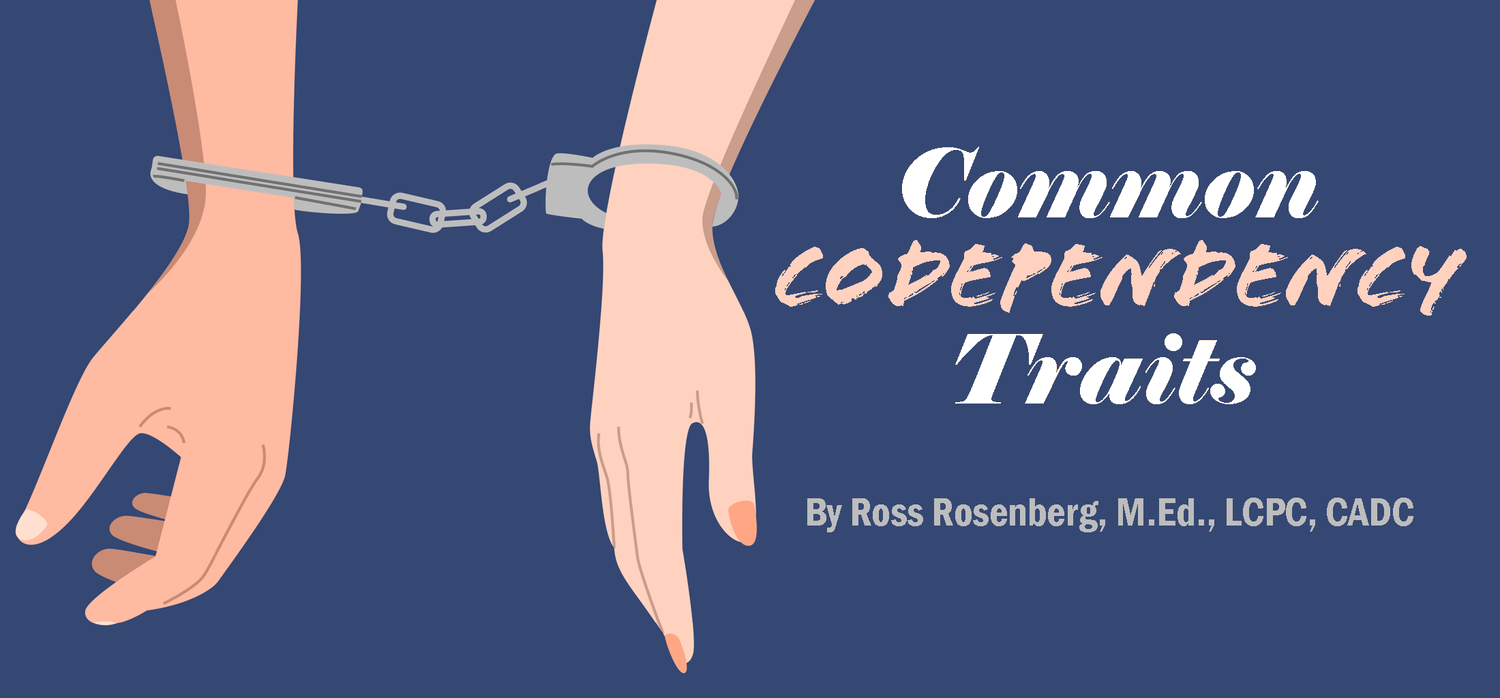
Common Codependency Traits
Common Codependency Traits Excerpt from Upcoming“The Codependency Revolution”Released with workbook on November 1, 2023 Written by Ross Rosenberg, M.Ed., LCPC, CADCSelf-Love Recovery Institute — President/CEOPsychotherapist, Educator, Author, Expert Witness COMMON CODEPENDENCY TRAITS Although codependency has been...

We Are All Human Magnets
The earth is one colossal magnet with two opposite poles, like its smaller magnetic cousins. Each pole has opposite magnetic charges: positive and negative. As a result, a metal needle in a compass is highly sensitive to our planet’s magnetic field.
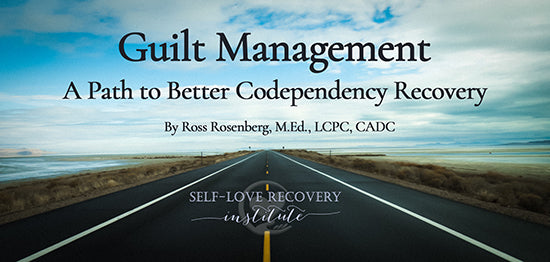
Guilt Management: A Path to Better Codependency Recovery
If you find yourself in a relationship with a covert narcissist, it can be extremely difficult to escape. Covert narcissists are masters of manipulation and control, and they will do everything in their power to keep you under their thumb.
Here are five tips on how to break free from a covert narcissist.
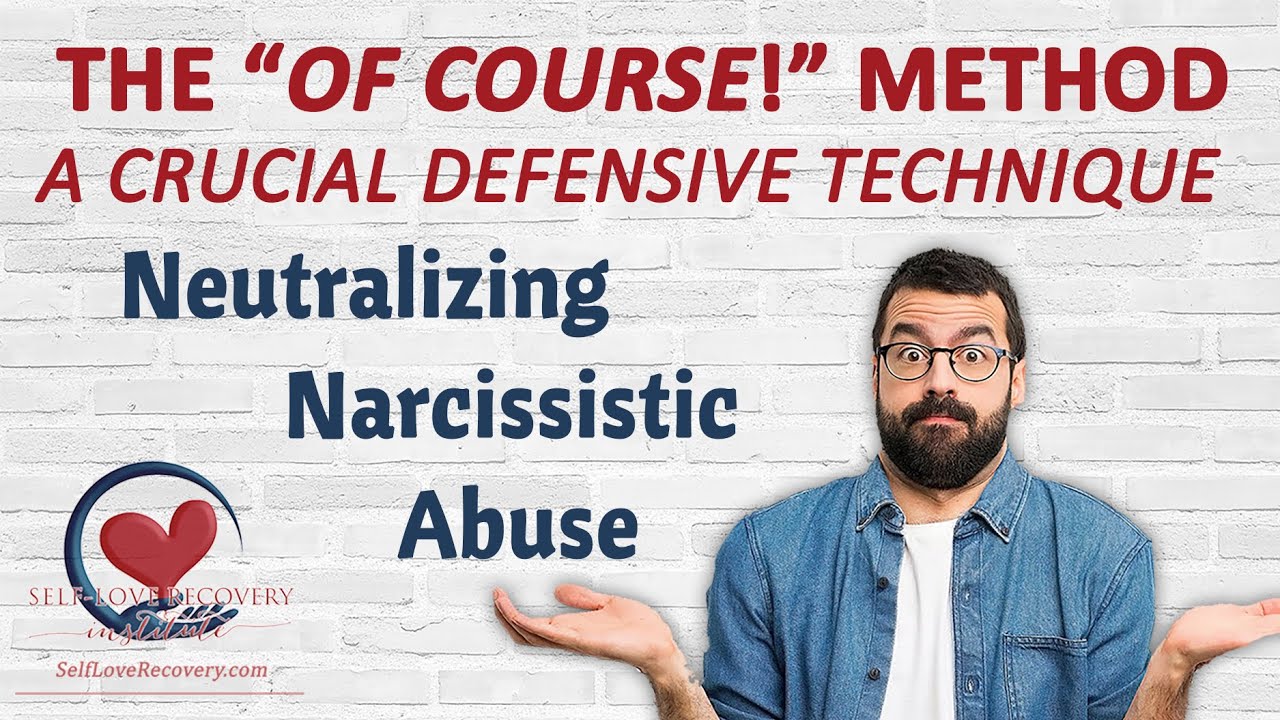
The "Of Course" Method: Neutralizing Narcissistic Abuse
One of the most effective techniques for setting boundaries and breaking free from a pathological narcissist is the “Of Course Method.” It may seem like a simple turn of phrase, but “of course” are two small words that hold huge

When You Unmask a Covert Narcissist, RUN, but Quietly!
Covert narcissists are the worst type of narcissists. They thrive by pretending to be something they are not. They pretend to be altruistic, kind, and codependent. Covert narcissists get what they need out of life by creating a false self. And they hurt people in their most intimate relationships behind the scenes. To unmask a covert narcissist can be very dangerous, because of their manipulative nature and that they are often respected by others.
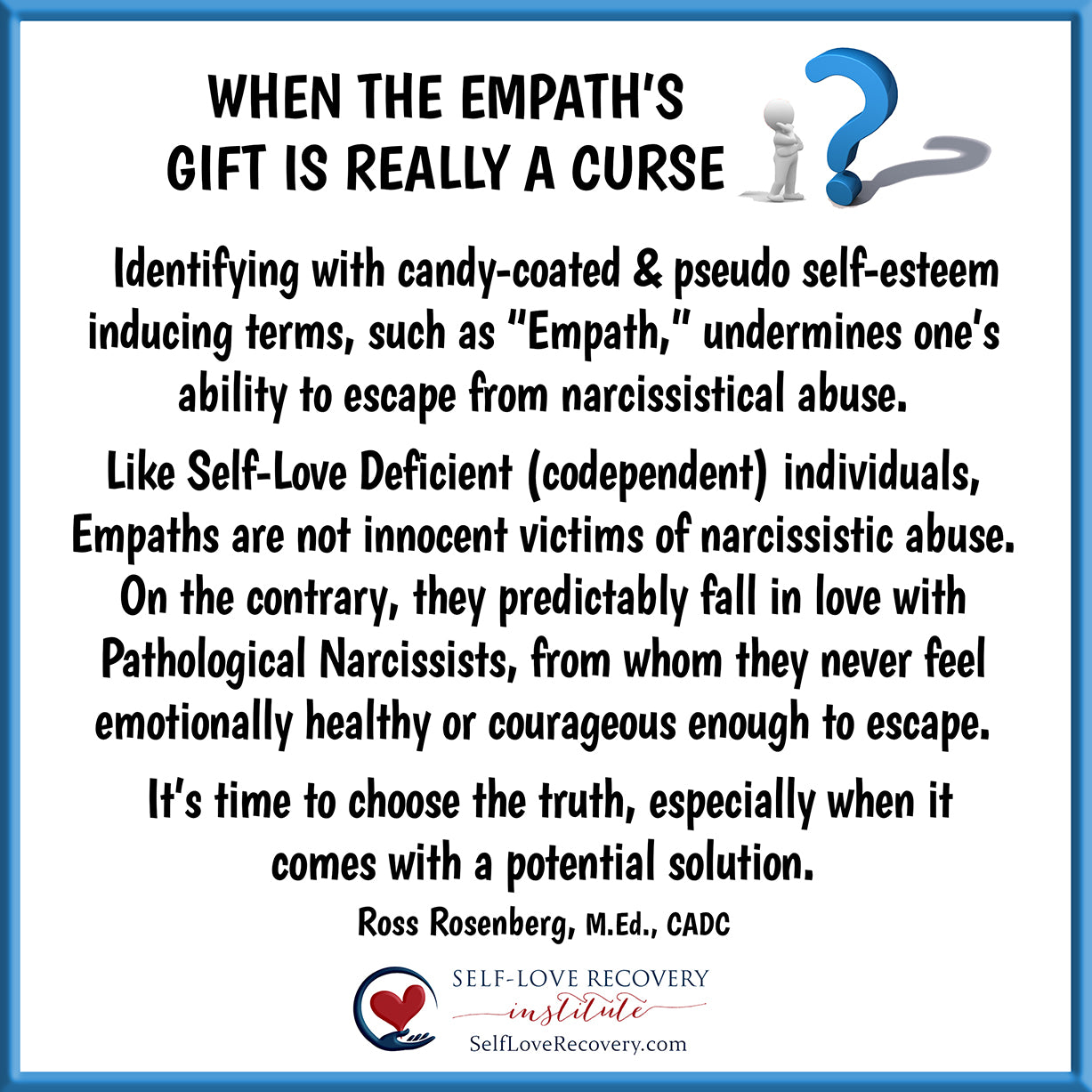
"Empath" Is Not the Same as "Codependent"
I have to be honest, I do not like when the term “empath” is used interchangeably with “codependent.” “Empath,” which has its origins in the spiritual and metaphysical world, was never intended to be a replacement term for codependency. An empath is defined as a person with the paranormal ability to intuitively sense and understand the mental or emotional state of another individual...

"Codependency" No More
“Codependency” is an outdated term that connotes weakness and emotional fragility, both of which are far from the truth. The replacement term, “Self-Love Deficit Disorder” or SLDD, takes the stigma and misunderstanding out of codependency and focuses on the core shame that perpetuates it. However, inherent in the term itself is recognizing the core problem of codependency and its solution.
